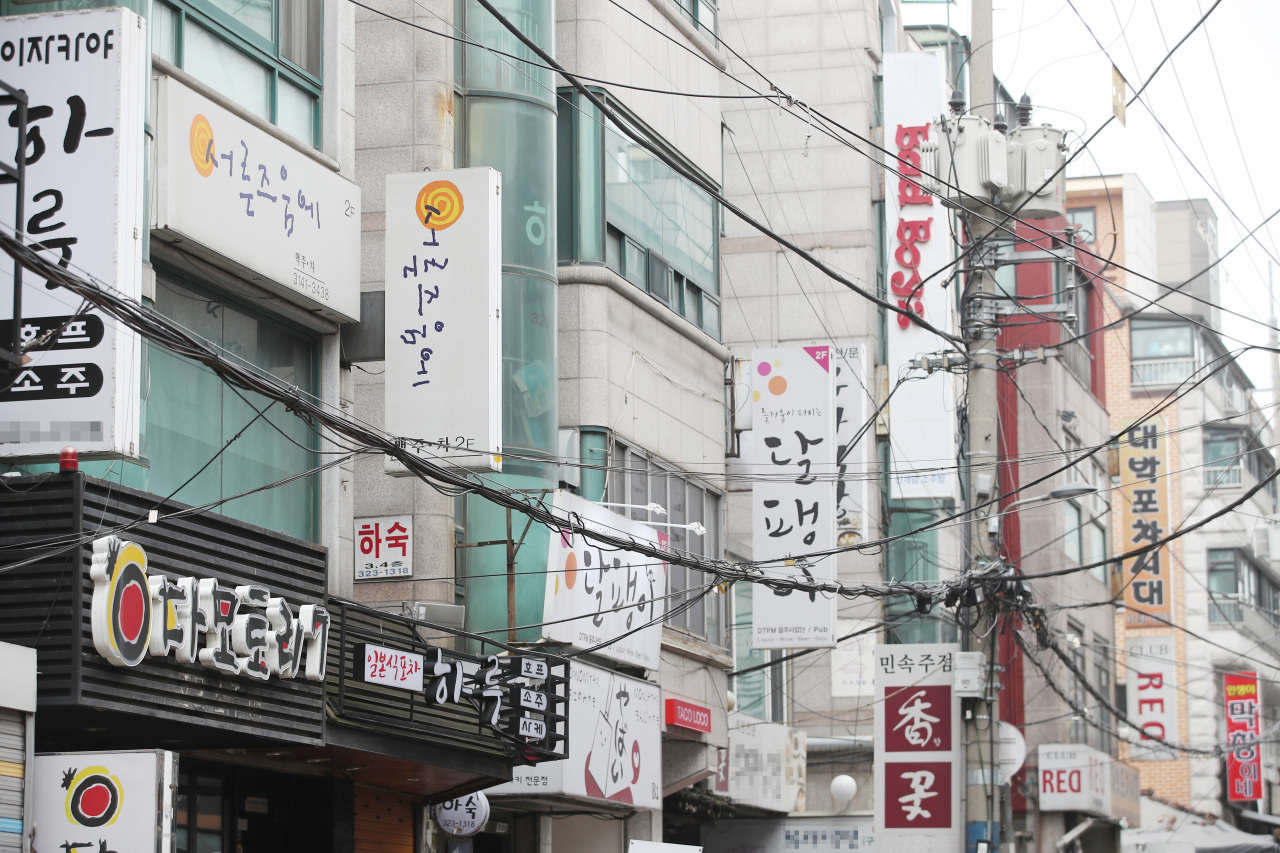
(Yonhap)
Foreigners who visited clubs or bars in Seoul’s Itaewon, a nightlife spot popular among locals and foreigners alike, during last week’s holidays are urged to get tested for the coronavirus after the area emerged as a hotbed of COVID-19.
“We request those who visited clubs in Seoul’s Itaewon between late April and May 6 to refrain from going out and to follow instructions from community health centers to undergo a diagnostic test,” Korea Centers for Disease Control and Prevention Director Jung Eun-kyeong said during a press conference Sunday.
Those who visited bars or clubs in Itaewon during the holiday period have a higher risk of exposure to the virus, Jung explained, urging them to dial 1339 to contact the emergency call center for a consultation. Even those without proper stay permits will be tested and treated free of charge and there is no need to worry about deportation, a Health Ministry official added.
As of noon Sunday, the authorities had identified 54 confirmed cases of COVID-19 linked to Itaewon clubs, including four foreign nationals.
Itaewon surfaced as the latest COVID-19 cluster after a 29-year-old resident of Yongin, Gyeonggi Province, tested positive Thursday after visiting five establishments there May 2-3 and Tuesday. They are King Club, Trunk Club, Club Queen, Soho and H.I.M.
Authorities are trying to contact all those who visited the clubs between April 30 and May 5. It is believed that more than 5,000 people did so, and it is unknown how many were foreigners.
An earlier survey of 1,510 visitors on May 2, based on clubs’ books, showed that about 30 were foreigners.
As part of quarantine measures, guests were asked to write down their names and contact details before entry. Reportedly not all visitors complied. Authorities are looking at other resources to trace people who may have been exposed to the pathogen, such as credit and debit card data and surveillance cameras installed at the sites.
Among the infected four foreign nationals, three -- two Frenchmen in their teens and 20s and one 20-something American man -- live together in the Itaewon area.
The three were found to have visited Damotori 5, a bar in Sinchon, another mecca of nightlife in Seoul, May 3. They visited the same spot late on May 5 and stayed about four hours, until the early morning of the following day.
People who tested positive were also found to have visited another Itaewon club called The Fountain and Black, as well as a male-only sauna in Nonhyeon-dong in the Gangnam district.
On Sunday, Gyeonggi Province Gov. Lee Jae-myung issued an emergency administrative order for visitors to Itaewon clubs and the Nonhyeon sauna to undergo tests between Monday and May 17. Those who don’t follow the order can be sentenced to up to two years in prison or fined up to 20 million won ($16,380).
Seoul Mayor Park Won-soon on Saturday ordered nightlife spots, including nightclubs and adult entertainment facilities, to suspend business.
Early detection of foreigners who may have come into contact with those who tested positive for the novel coronavirus is a tricky task for authorities, as their contact details provided by clubs tend to be inaccurate and their access to virus-related information may be limited due to language barriers.
To quench their thirst for social interaction, people started to gather at pubs, nightclubs and bars amid a series of public holidays in late April and early May, coupled with the relaxation of the social distancing campaign.
With the discovery of the Itaewon cases, loopholes in quarantine measures have emerged. Those who have mobile phones using Korean telecom carriers receive text messages alerting citizens to confirmed coronavirus infections in their neighborhoods. But the information is only provided in Korean, not in other languages.
To prevent imported cases, the country suspended visa-free entry and visa waiver programs for 90 countries that impose entry bans on Koreans from April 13. In early April, Seoul began requesting that all Koreans and travelers arriving from overseas get tested for the coronavirus, even if they have no symptoms.
The government covers all costs associated with COVID-19 testing and treatment for all foreign nationals.
By Park Han-na (
hnpark@heraldcorp.com)






